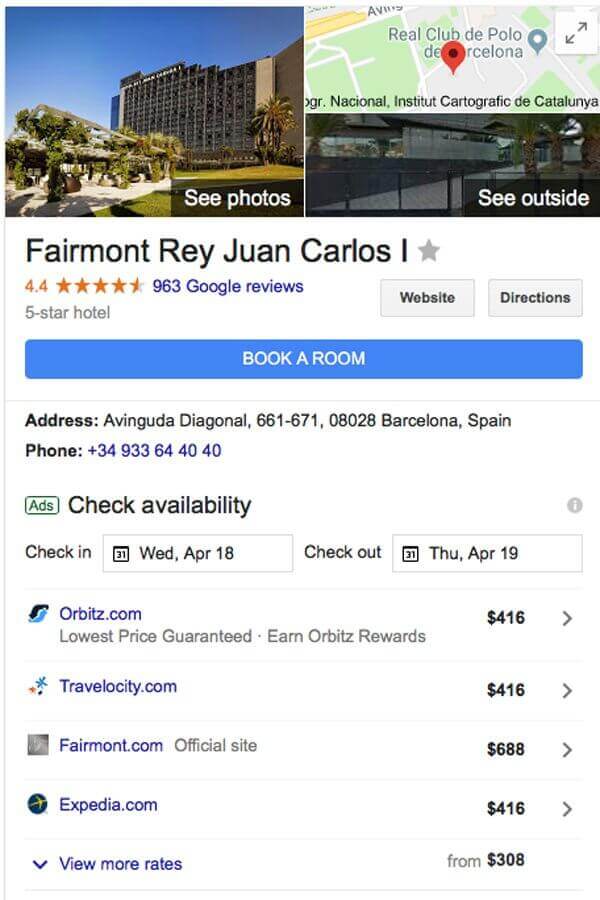
Google appears to have recently changed how it treats the biggest hotel discounts in its advertising-driven, price-comparison hotel search. In our test searches, we see a change.
Google used to display the lowest rates high in its rankings. Since at least Tuesday, Google has been more frequently “burying” the lowest hotel rates from smaller advertisers in its search results.
More precisely, Google is now often requiring users to click a “More” button to see the lower rates in searches. We’re talking about cases where the lowest rate is significantly cheaper than the others.
That matters because conventional wisdom has it that fewer consumers will click a “More” button to see a full set of rate listings — even if there may be money to be saved.
Google appears to have changed how its advertising auctions work. Smaller online travel agencies that have the best rate now have to bid more than before to get higher visibility. The move implicitly favors global conglomerates, such as Booking Holdings, Ctrip, and Expedia Inc., that can afford to outbid others.
A Google spokesperson declined to comment for this story.
Happening Fairly Often
On Thursday, a Google search for a “Wynn Las Vegas” stay March 19 turned up rates from Google’s hotel metasearch. Big brands like Hotels.com and Priceline.com offered $399 rates.
But the best rate was $119 from Amoma.com, a travel agency that typically gets discounted inventory via wholesalers. To find it, a user had to click a “View more rates” link.
Before this week, Google was likely to display significantly discounted rates like that higher up, without having to click to see “More.”

We did multiple searches by hotel name. We did generic searches for hotels in specific destinations. We used Web browsers in three countries.
Then we compared the results with screenshots from Google’s past practice and with searches on other price-comparison search engines.
Without much effort, we found two dozen examples where Google required users to click “More” to see the online travel agency that has the lowest hotel rate. That was the overall pattern.
There were exceptions. For example, we came across an example of Google presenting the best deal for the Refinery Hotel in New York City in the top four results in desktop search. But when we repeated the search with the same criteria, the biggest discount was hidden under a “View more rates” button.
We found more disparity in prices in our European searches than in U.S. searches because Europe has recently stopped online travel companies from requiring hotels to give the same rates to all players. Major U.S. hotel chains generally have tight control over their rates, too.




